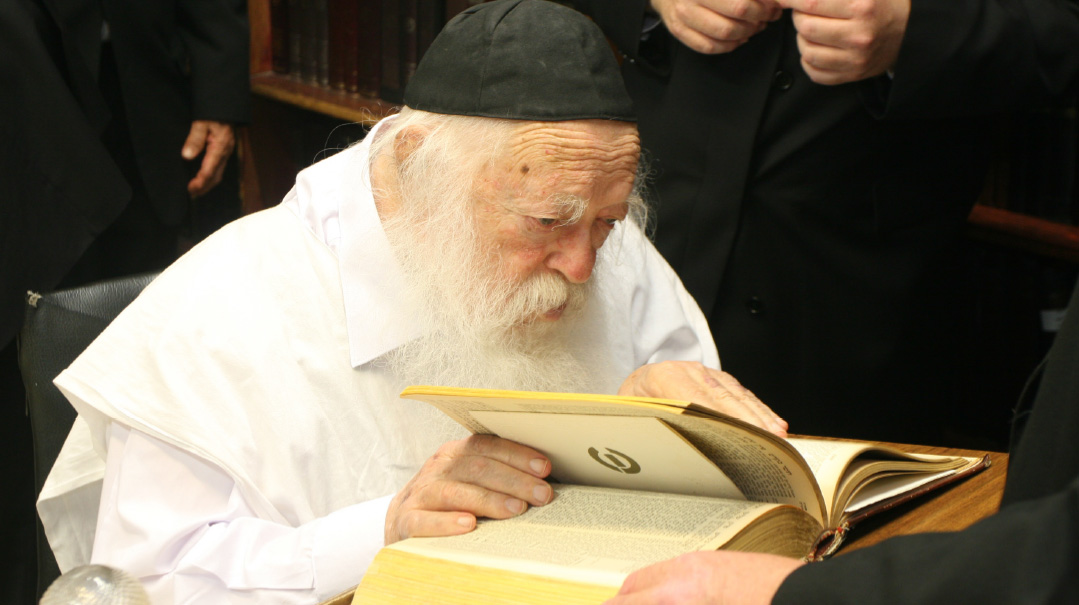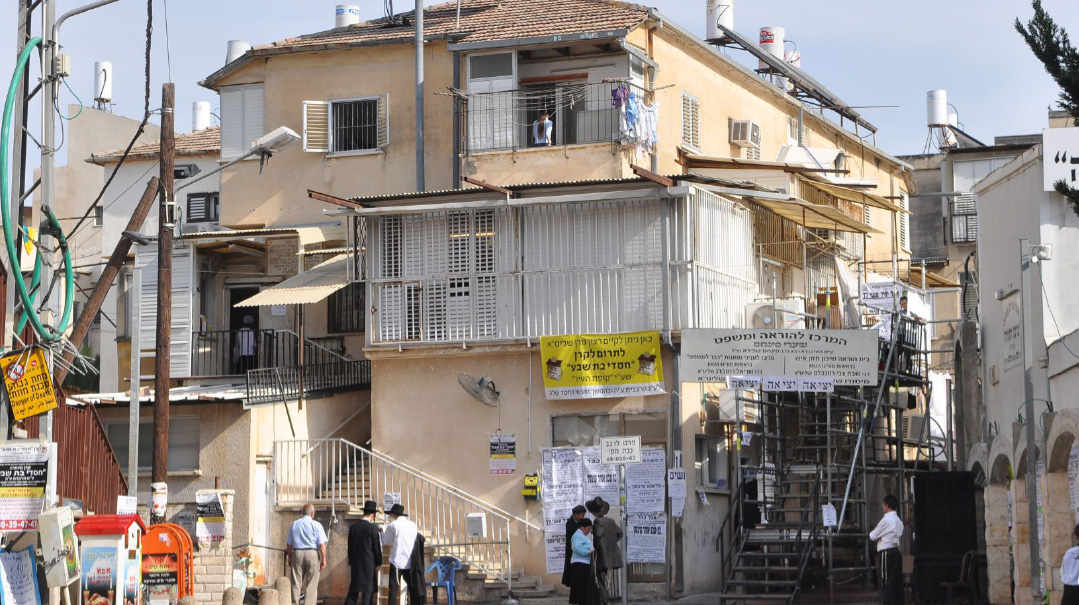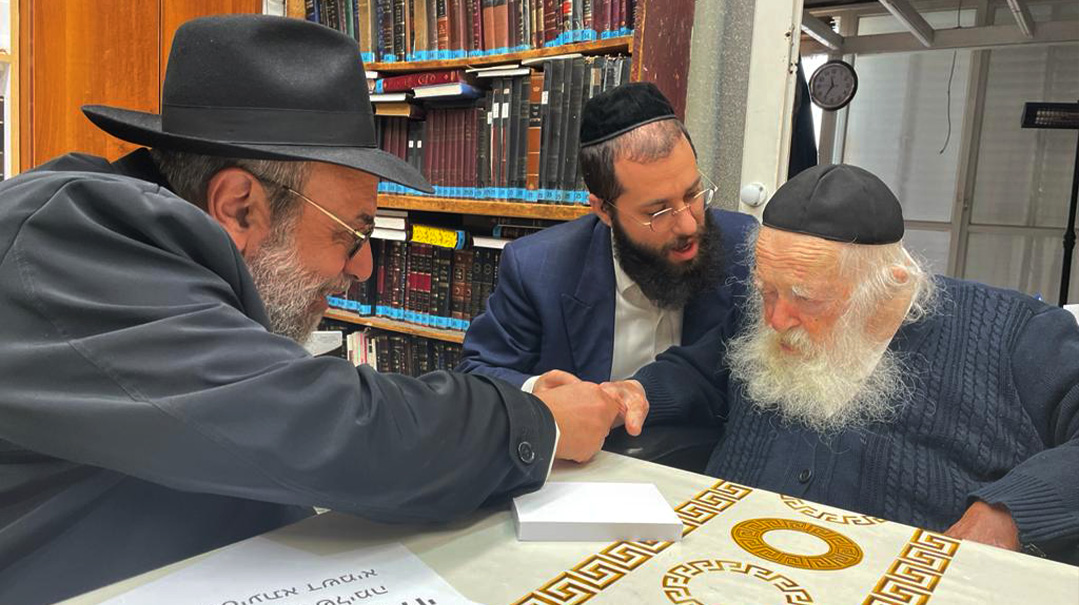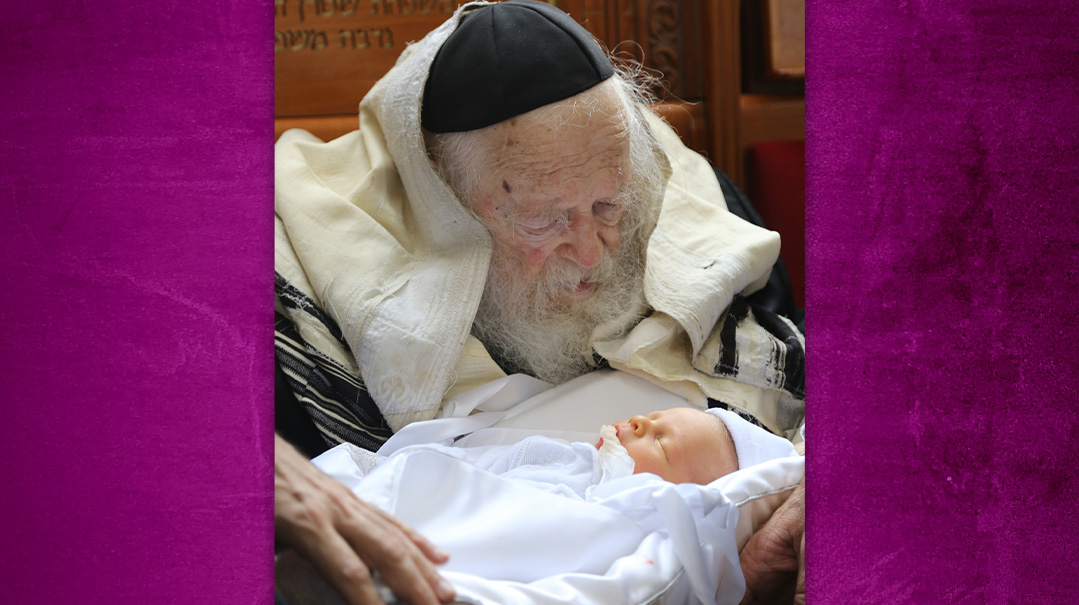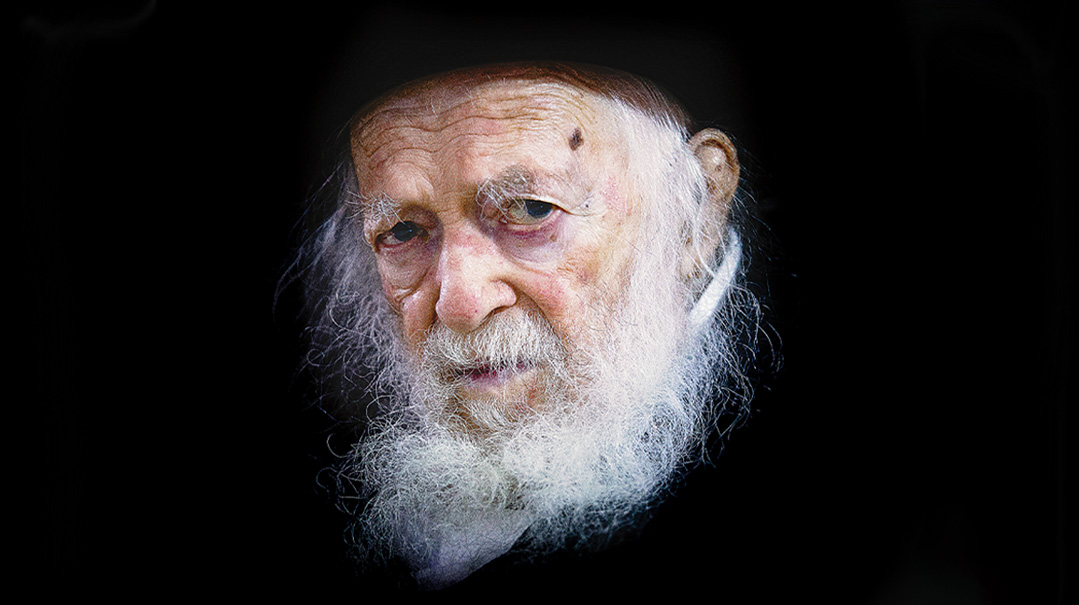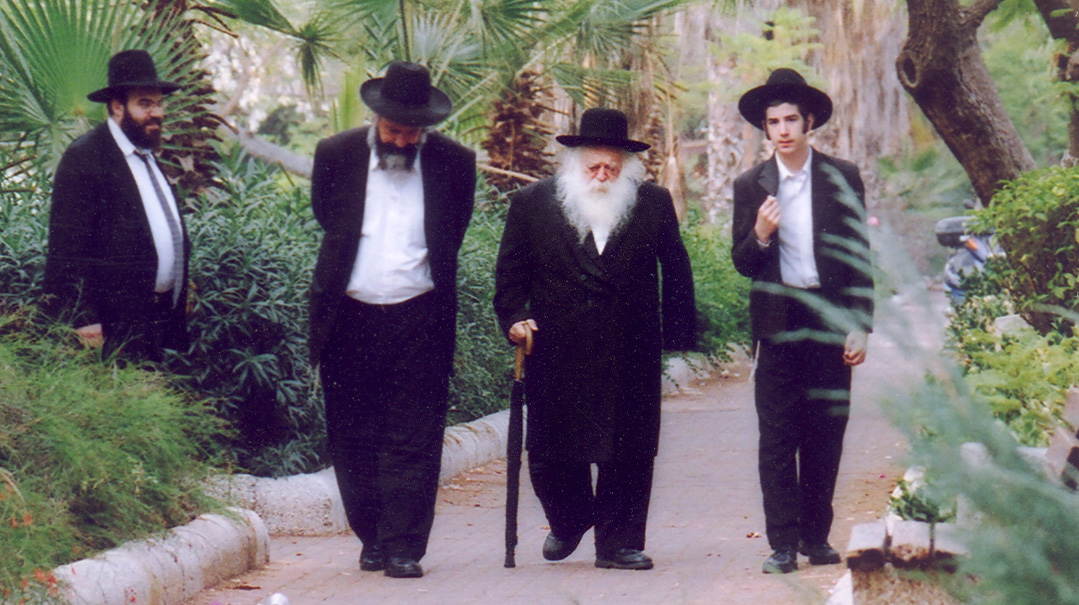All in the Family
| March 22, 2022"He was always a family man. He loved his children and closely monitored their development. Until his very last day, he always needed his children around him"
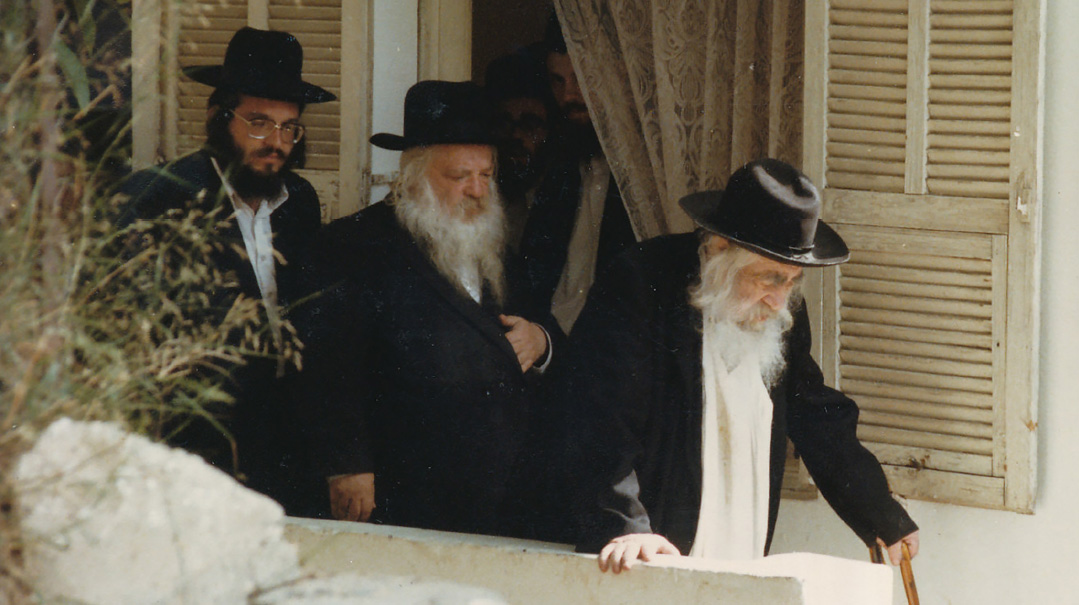
For most of the world, Rav Chaim Kanievsky was a scholar, a master, a leader.
But for his children, he was Abba — a warm and loving father who was decidedly more elevated than the other fathers they knew, but always involved in their lives and visibly happier when his children were around his table.
Rav Chaim himself grew up in a tightly bound family. His father, Rav Yaakov Yisrael Kanievsky, was known as the Steipler Gaon. His mother, Rebbetzin Pesha Miriam, was a daughter of Rav Shmaryahu Yosef Karelitz, rav of Kosava, Belarus. She was also a sister of the Chazon Ish, Rav Avraham Yeshaya Karelitz.
Rebbetzin Pesha Miriam’s two sisters married Torah royalty as well: One brother-in-law was Rav Shmuel Greineman, father of Rav Chaim Greineman; another was Rav Nachum Meir Karelitz, the father of Rav Nissim.
Rav Chaim was born in Pinsk, but the family immigrated to Eretz Yisrael when he was a child and settled in Bnei Brak. Soon enough the Torah giants of the extended families became the prime forces shaping not only the Torah community of Bnei Brak, but the entire country.
All along, they maintained a tight familial bond.
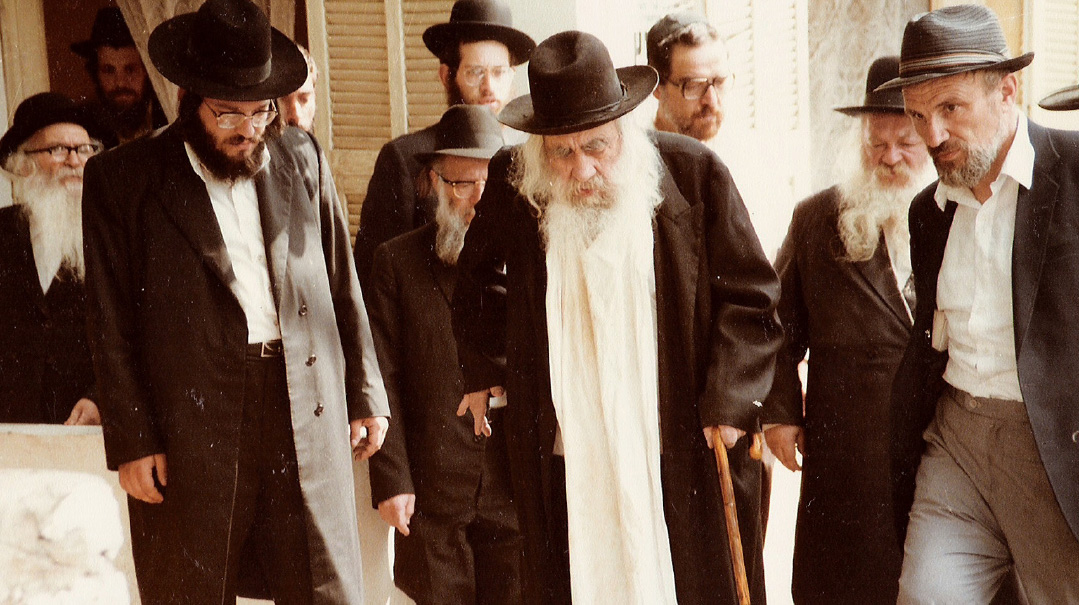
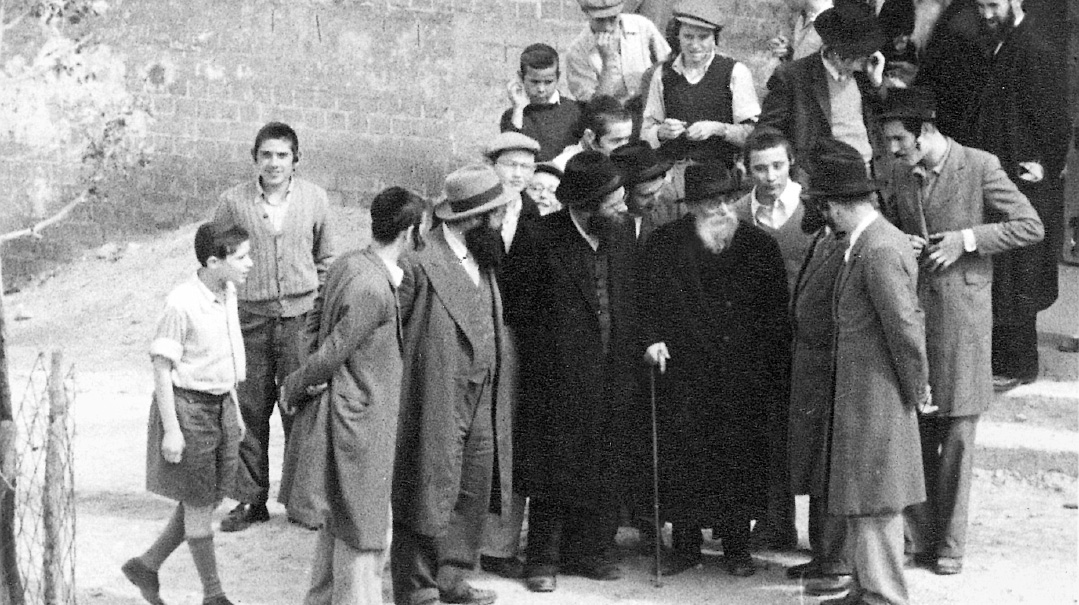
While Rav Chaim’s father, the Steipler Gaon (top), and his uncle the Chazon Ish were personality opposites, they were the two most influential forces in his life
Rav Chaim’s parents lived in the same home as the Chazon Ish, and thus his childhood was dominated by two larger-than-life personalities: his father, the Steipler Gaon; and his uncle, the Chazon Ish. Both left indelible stamps on Rav Chaim.
The Chazon Ish was involved in Rav Chaim’s shidduchim and ultimately helped finalize his shidduch with Rebbetzin Batsheva Esther, the daughter of Rav Yosef Shalom Elyashiv. Until the end of his life, Rav Chaim was fiercely loyal to his uncle and brooked no deviation from his halachic standards.
Rav Chaim’s father, the Steipler Gaon, had a completely different personality from his son. While Rav Chaim was similar to his stoic uncle, the Steipler readily showed emotion and could be heard rebuking himself, “Yankele, what will become of you?” He fused analytical brilliance with chassidic warmth, and brought up his children with tales of tzaddikim.
Rav Chaim’s path to greatness seemed assured early on. He gained a name for his encyclopedic knowledge and superhuman diligence long before he turned 20.
The path to marriage, however, was not easy for Rav Chaim. The Chazon Ish had hoped to marry him off at the age of 17 or 18, but the shidduch offers trickled in slowly, since Rav Chaim was virtually the only yeshivah bochur in the litvish world at the time who grew a beard. In those years, it simply wasn’t an accepted practice. No girl — especially the more “open” Yerushalmi girls — would consider marrying a young man with a full beard.
Rav Chaim was already 24 when someone suggested young Batsheva Esther Elyashiv as a potential shidduch. She was daughter of Rav Yosef Shalom Elyashiv, and the great-granddaughter of the Leshem. Her maternal grandfather, the famed “Tzaddik of Yerushalayim,” Rav Aryeh Levin, strongly encouraged her to pursue the shidduch.
He had a powerful ability to discern talmidei chachamim from afar, and he told her, “Listen to me. This bochur is going to be the gadol hador. You should take him.”
Oops! We could not locate your form.






